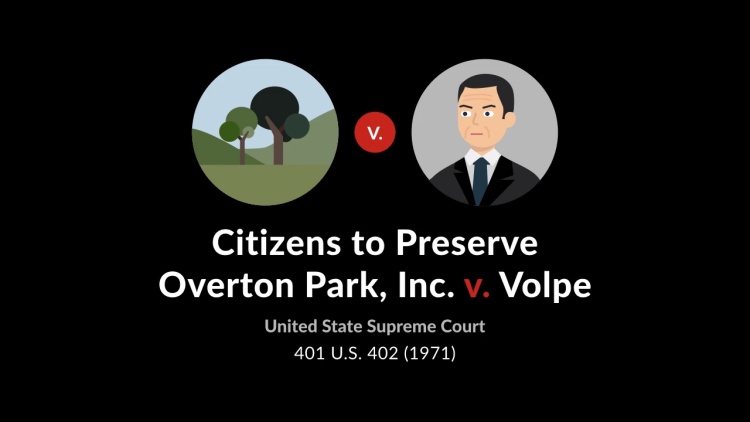Citizens to Preserve Overton Park, Inc. v. Volpe
United States Supreme Court
401 U.S. 402, 91 S. Ct. 814, 28 L. Ed. 2d 136 (1971)
- Written by Jamie Milne, JD
Facts
The United States secretary of transportation (secretary) (defendant) authorized the expenditure of federal funds for the construction of a highway through a public park in Memphis, Tennessee. Private citizens and conservation organizations (plaintiffs) sought to halt construction, arguing that the secretary violated portions of the Department of Transportation Act of 1966 and the Federal-Aid Highway Act of 1968, which prohibited the use of federal funds to finance highways through public parks if feasible and prudent alternative routes existed. Even if no such alternatives existed, the secretary could approve construction through parks only if the plans minimized harm to the park. The secretary did not state factual findings when approving the highway’s route and design, meaning he did not indicate why there was no alternative route or why design changes could not be made to minimize harm. The district court granted summary judgment in the secretary’s favor, reasoning that formal findings were not required and, based on litigation affidavits, the secretary acted within his discretion. The court of appeals affirmed, and the United States Supreme Court granted certiorari.
Rule of Law
Issue
Holding and Reasoning (Marshall, J.)
Concurrence (Black, J.)
What to do next…
Here's why 907,000 law students have relied on our case briefs:
- Written by law professors and practitioners, not other law students. 47,100 briefs, keyed to 996 casebooks. Top-notch customer support.
- The right amount of information, includes the facts, issues, rule of law, holding and reasoning, and any concurrences and dissents.
- Access in your classes, works on your mobile and tablet. Massive library of related video lessons and high quality multiple-choice questions.
- Easy to use, uniform format for every case brief. Written in plain English, not in legalese. Our briefs summarize and simplify; they don’t just repeat the court’s language.





